Maria Eagle MP, Minister for Defence Procurement, underscored the urgency of modernising the UK’s air and missile defence systems during a recent parliamentary debate, citing the evolving global threat environment.
Reflecting on recent geopolitical tensions, including Russia’s reckless use of intermediate-range ballistic missiles, Eagle stressed that the UK must prioritise deterrence and integrate defence capabilities across land, sea, and air.
She stated, “In this uncertain future, deterrence—not only of the nuclear kind—will form the main line of defence.”
Eagle noted that the government has already made strategic decisions to reallocate resources, such as withdrawing six outdated capabilities, saving £500 million over five years. While these decisions were aimed at rationalising spending, she made it clear that the focus remains on ensuring defence investments deliver modern and effective systems. She added, “As the hon. Gentleman will see in the new year, a path will be set out to 2.5% [of GDP] in the spring, along with the Strategic Defence Review. We are committed to it and we will get there.”
Highlighting the UK’s unique geographic position, Eagle explained that while it offers certain defence advantages, it also requires tailored solutions. She acknowledged recent reports of drones targeting RAF bases, stating, “Protection of our personnel and bases is our highest priority. We employ multi-layered and credible force protection measures.” While specifics were not disclosed for security reasons, she assured Parliament that these threats are being actively addressed.
Eagle pushed on the critical importance of NATO integration to the UK’s defence posture, citing initiatives like DIAMOND, which aims to enhance air defence interoperability across Europe. “It is all very well for us all to procure different missiles, but if we do not work together, one ends up with holes and gaps. There is a good argument for ensuring that we can join up whatever systems there are to boost overall defence for Europe. That is what DIAMOND seeks to do,” she explained.
Looking ahead, Eagle said the forthcoming Strategic Defence Review will focus heavily on preparedness against air and missile threats, including low-cost drones and strategic long-range weapons.
She highlighted the government’s leadership in NATO initiatives, such as the multinational procurement programme to support Ukraine, and stressed the need to mobilise the Euro-Atlantic defence industry. She also pointed to recent agreements with Germany and France, such as the Trinity House agreement, as crucial steps in fostering stronger bilateral defence cooperation.
“We have to continue to look at how the UK can meet her own NATO commitments, provide defence and deterrence, and protect the UK homeland,” Eagle said.
Eagle concluded by reaffirming the government’s commitment to boosting industrial capacity and delivering a comprehensive defence strategy. “We are committed to ensuring that we spend wisely on the right capabilities, working with our allies to build a peaceful and stable Euro-Atlantic area. This is a certainty in our strategic way forward,” she stated.
At the UK Defence Journal, we aim to deliver accurate and timely news on defence matters. We rely on the support of readers like you to maintain our independence and high-quality journalism. Please consider making a one-off donation to help us continue our work. Click here to donate. Thank you for your support!


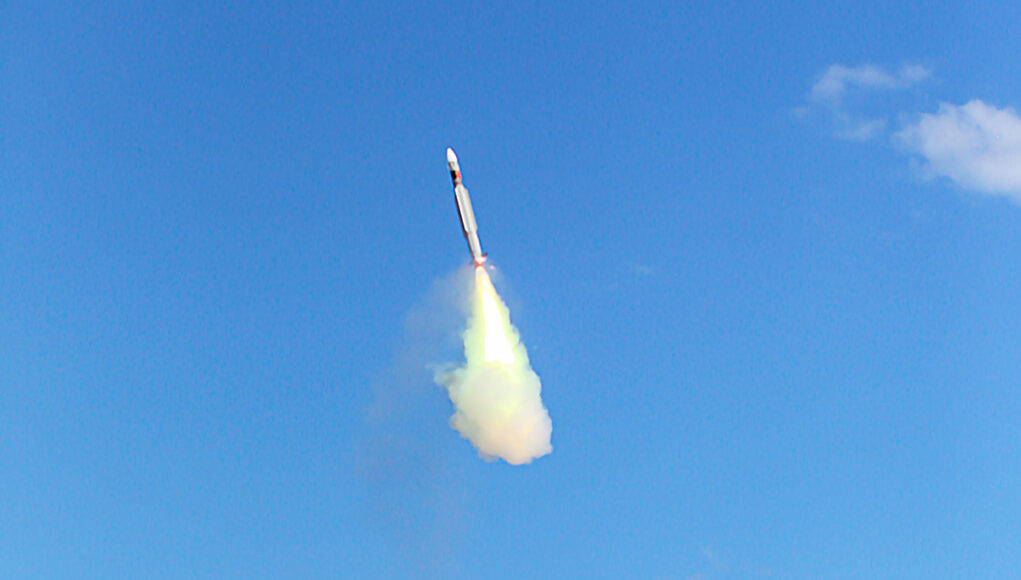


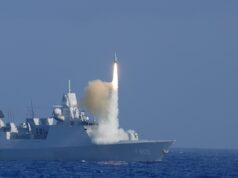


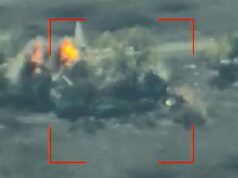
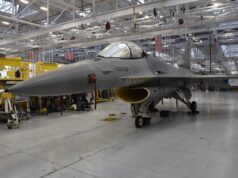
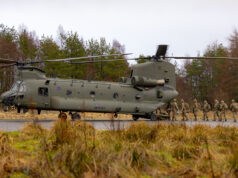



This is something that should have already been sorted the fact that it isnt its embarrassing.
An other SDR that says you can have one or the other and forget that nice to have capability.
Yep. I can see it coming. Our military is expeditionary.
I fear entire areas cut for the sake of home defence, leaving the UK stronger defensively but weaker overall.
Unfortunately, I agree with you Daniele,
What do you think will be on the chopping block?
Quite possibly land systems like Challenger 3 and Ajax.
Brian, you are not seriously suggesting the axing of the CR3 and the Ajax programme? Both are in build, money identified and ring-fenced, and the army is desperate for both programmes to be delivered. The army is in a terrible state as regards AFVs (and artillery).
I’d rather not say!!!
As the principal threat to NATO now is clearly from Russia and its CRUNK allies, the strategic pendulum swings back to European defence and away from out-of-area expeditionary forces.
We don’t have anything like the necessary army and air force numbers of personnel or equipment to meet our NATO Europe commitments, so that needs to be the priority task, after medium and high-level GBAD.
This was always going to be the case with a resurgent Russia. We have few commitments outside of Europe though to defend now and it looks like we are going to have even less once the Donald surrenders to Russia and hands over Taiwan.
I’m pretty happy for us to boost missile and air defences along with nuclear weapon and satellites and other strategic assets currently provided by the US. If that was we can deploy one less bridge then so be it, Europe has no lack of brigades.
Europe is actually very short of all-arms manoeuvre brigades. The UK is one of the weakest in this respect, the last thing we need is further cuts to the army!
With an increase to 2.5%, would hope to see our combat brigades increased from the current niggardly 4.5 to 6. That would still be a long way short of the number we are committed to provide to NATO.and the lighter forces we need to have in strategic reserve in the UK.
Hi mate. Agree on that point but I would gladly give (methinks like you do) up some light infantry no role or kit, PIDs and pass them onto the RA and get some new SHORAD regiments and anti UAV Troops! And you know my thoughts on the RAF Regiment, get them back to AD, which is what they were formed for, and let’s stop pretending they are light role infantry companies!!!!! Hope all is well with you mate 👍
Welcome back! Hope you are safe and sound.
We need a layered defence which means addressing the lack of land based systems but we also need not only SHORAD, but a MEDRAD and LONGAD – that means providing the Royal Navy with more platforms than the 6 they have now and also investing in the RAF; anything else is just words and the rejoinder of ‘we must stick together…’ Poor performance by this Govt so far.
Hi mate all is well and total agreement from me 👍
Hi mate. Sorry for late reply, no notifications any more.
I’m in agreement on all that, I remain skeptical on whether the Cap Badge Mafia would relent and give up named Bns for CS CSS elements though. I also wonder whether enough PIDS would be generated given that 11 SFAB Bns, the obvious candidates, are already much reduced in size.
Hi mate, I know you have a vested interest with the Rocks! But I do feel that they need to keep their light infantry role, but with better protection and offensive capabilities. They would also include a proper air defence role. Unless you want the “Blue Suits” dealing with a Spetsnaz/para insertion type scenarios, when defending airfields and other key sites? There was talk a long while back of amalgamating the Rocks into the Army. But if you take the skeptical view, with so few front line troops today. Would the Army release some to defend airfields etc?
My thoughts are that the RAF should have a tiered ground/air defence strategy. Which harkens back to the Cold War days. Where one level is highly mobile SHORAD, another semi-mobile using something like Sky Sabre and the last on a fixed site with very high altitude interception using something like a mix of endoatmospheric THAADS and exoatmospheric Arrow-3. That provides protection to the U.K. as a whole.
The reason for the highly mobile SHORAD is to defend austere sites used by dispersed fixed wing aircraft. But also helicopter support operations, where they can move FOBs within 24 hours, so need a more mobile defence. Whereas fixed wing sites need serviceable runways or long straight roads that can take the weight. Plus their supporting HQ, maintenance, armament and logistics is not geared for rapid redeployments. A semi-mobile system such as Sky Sabre would be better suited to defend these sites. Plus it will give a much better area coverage if using CAMM-ER/MR. I’m pretty certain due to the threats that Russia is chucking at Ukraine, Sky Sabre will get a better capability against ballistic threats.
For the type of threats airfields and FOBs now face. I’d give the Rocks better armoured mobility based on the Boxer. Where they’d have a number of different variants including a pseudo IFV version, that has 6 dismounts along with a remotely operated turret. That should house the CTAS40 for logistical commonality with the Army. If the turret included a pair of LMMs, this would give the Boxer limited anti-air as well as anti-armoured vehicle capabilities. Where depending on the turret’s sensors, it can then be better used in an anti-drone and anti-helicopter capability.
For dedicated SHORAD, again I’d choose a Boxer variant that includes a CTAS40 turret. Paired with either ground launched ASRAAM or extended range Starstreak/LMM. Along with the necessary active and passive sensors. Thereby allowing it to counter drones, helicopters, ground attack aircraft and guided weapons. Perhaps also a limited anti-ballistic missile capability.
If we were considering a traditional mass Russian para insertion. That included a mix of BMP IFVs, light SPGs and their Sprut light tank along with at least a Brigade or two of infantry. Then having a Boxer type of vehicle armed with the CTAS40 defending bases would at least give the Rocks a fighting chance to put some serious hurt down, but also to delay the insertion, to allow help to arrive.
To that end I would also include a Boxer that could provide indirect fire support. So if the Army do choose something like the NEMO Automatic Mortar system for their Boxers. Then I would get some of these for the Rocks as well.
The Sky Sabre would also be used by the Rocks, as it would support deployed operations and is expected to be forward deployed guarding fixed wing MOBS. But would be networked with the RA’s Sky Sabre units. I’d also expect a number of the Boxer vehicles to support. Providing both MOB security and defence against drones.
The fixed units would be operated as they were during the Cold War as per the Bloodhound Sqns. But guarded by the Rocks.
The Rocks must have the ability to defend airfields, key installations, MOBs and FOBs from a multitude of threats. So let’s give them the tools to do via light armour support! Which will give them overmatch and a better ability to counter light armoured vehicles. But also give them back their old role of providing air defence, freeing up the RA to do their role of protecting the Army in the field!
Hi AB, Haven’t heard from you for a while. Good to see your comments!
Hasn’t that process already been unofficially revealed w/ the abandonment of the Albion class pre-SDR? There will be no practical means to support an expeditionary capability for the RM in the foreseeable future, but they could still maintain a valuable role guarding RN assets. Similarly, the planned reduction of the British Army to 73K personnel reduces its expeditionary capability, but the BA should remain capable of homeland defence. With additional investment (2.5% of GDP), the RAF and RN should be able to credibly contribute to home island defence. Believe self-defence is the highest priority and duty of any military. Assisting allies and friendly countries is a laudable, honorable goal, but not at the expense of shortcomings in capability to defend the homeland. Hopefully, 2.5% of UK GDP would be sufficient to maintain a defensive posture (at least capable of maintaining an unsinkable aircraft carrier for the US). 🤔😳🤞
We still have four large ships dedicated to the RM’s, it’s now more deigned around insertion of smaller numbers via helicopter rather than vehicles from amphibious ships. The USN and USMC is following a similar pattern although the US jobs program wants to keep jugging out more LPD’s because Congress 😀
Google Youtube on the USMC and their move away from heavy weapons – ROYAL are in a way just copying the USMC to a certain extent but without the missile element… SNAFU wrt to ROYAL who are our premier infantry fighting unit. (Sorry Airborne)
I do agree the RM aren’t too bad mate…😂
The BA has always been focussed on expeditionary operations excepting for the handful of times when invasion by a foreign power was a possibility (eras of Napoleon and Hitler). In the Cold War, I considered BAOR to be essentially expeditionary.
RN platforms are mostly built around expeditionary operations. Only OPVs/Patrol boats have a Home Defence flavour.
The RAF is a bit different in that they have a (small) QRA role – they have really only had a significant HD focus for a few years in WW2 out of the 100 they have been in existence.
So I don’t see that our armed forces should refocus to be largely HD forces. We have a global outlook and have always deployed forces globally, even if that is now in smaller numbers. Surely it is a waste to use 2 aircraft carriers and 14 or 15 escorts and attack subs to defend the UK? We don’t need an armoured division, attack helicopters and an air assault brigade to defend the UK – they are intrinsically for expeditionary operations.
I do worry about the future of the RM without amphibious assault ships, but what a waste to employ 5,000 ‘sea soldiers’ on defending RN assets at home.
What is the threat to the UK homeland from hostile states anyway? Russia would not invade us and neither would her cronies (China, North Korea, Iran) – we have home-based forces in the UK that can be turned to HD if required but that should not be their primary role as enemy invasion is so unlikely. The BA and RAF should focus on assisting our ENATO allies to deter and defend in eastern Europe.
This is what Healey was setting out while in opposition. While I agree we may need some rebalancing this should not be at the expense of UK’s strengths or we end up reaching out 1000 miles and that’s it. Its driven by Labour’s guilt about Britain’s past and its actually an excuse to spend less on defence and more on traindrivers and all their mates flying desks in Whitehall and Croydon. Its never about anything but the Defence of their voter base in the Unions to the detriment of almost anything else.
The miniscule increase spent on Defence is risory and utterly shameful.
Realistically it’s needed. We don’t have the budget for a full capability armed forces and even doubling the current budget would not achieve that, nor is it affordable with the mess the public wallet it in.
As we also are no longer able to operate alone, tbe need for it is also not there.
We would be far better to specialise on a specific capabilities and fully equip and man them capabilities than try and do everything and end up having nothing in the amount needed.
However policticially I can’t see that ever happening.
This all sounds positive, but as ever, the devil will be in the details when the defence review is published.
It is stating the obvious, to the UKDJ readership at least that the UK needs to rapidly invest in AD capabilities at all levels. I am hoping to see an increase in RA Regt’s in an AD role (new units and not re-roled ones) as what we have is insufficient.
12 and 16 Regt’s RA are co-located at Thorney Island. Any additional capability should be based across locations all the way up the country into Scotland. Yes, co-location for training and maintenance may have made sense a few years ago, but not now. Having most of your AD assets and stored in warehouses and trained personnel accommodated in one place is a vulnerability that we can now do without. It would be far too tempting a target for a submarine launched missile strike or even an SF raid.
In addition to extra any regular units:
1. Sufficient Army Reserve RA Regt’s should be re-equipped and trained to the same standard.
2. All major units should have an organic SHORAD Plt/Trp etc. I’m not just talking about Inf and Cav Units, but also the RE, RLC, REME, R Sigs and non-AD RA Regt’s too. Ukraine has shown us that the huge evolution in UAS and indiscriminate use of missiles, glide bombs and cluster munitions means that everywhere is vulnerable, not just the FLOT.
3. The same with anti-UAS systems, though from what I’ve seen on UKDJ and other sites, this appears to be happening already.
4. Restore the RAF Regt SHORAD Sqn’s. Airfields are a clear vulnerability and bringing back this ability is a no-brainer to me as it will remove the task from an overstretched RA. I would hope that it is something that CAS is lobbying hard for.
5. Another one that seems to be in the process of being addressed (I am ready to be corrected by more read in contributors) is RN at sea strategic AD. T45 can do it (though can’t be everywhere at once) and T26 appears to be going to be ‘fitted with’ as well.
I will finish by saying that everything remains up in the air until the Defence Review is published and the Treasury have their say as well….
Naval bases and major radar facilities should also have some deployable protection and especially counter drone. Maybe they do/don’t, i don’t know. Their airspaces should be being monitored already! Undersea approaches to ports, sub bases, seaways, should also be being monitored out to a certain deemed safe radius.
Government minister discovers facts known to the general public since the 1980’s.
Too true – certainly known to anyone who has thought about it for 5 mins or more!
In many ways, Putin’s direct threat to the UK opens up the debate about the lack of missile defence. It appears we don’t have one, which is very worrying considering a strike from a rogue state and Russia can’t be ignored.
The only missiles in range of the UK are ICBM’s and no country on earth has any real defence against ICBM’s
This is the reason we don’t have missile defence in the UK but it’s wrong to say we don’t have missile defence. We do it’s just based in Romania which up until recently was the best place to put it.
Not so. The Russian enclave of Kaliningrad is about 800 miles from London. It can launch both the “new” IRBM as well as a number of ground launched cruise missiles at us. from Kaliningrad the cruise missiles, such as the SSC8, which has a range of around 1500 miles. Which means all of the UK would be targetable!
I’d be concerned about Yassen’s in the North Sea and the Gap firing dozens of kalibrs etc. If it ever kicked of Kaliningrad would fall in hours.
I hope NATO has a comprehensive NATO plan to deal with Kaliningrad first-up?! Seems like another major reason to take the need for a more structured GBAD in the UK more seriously. You don’t wait to be hit.
Ok sure but any ballistic missile launched from Kaliningrad at the UK is going to be very much open to interception from aircraft orbiting in NATO airspace and the launcher is probably taken out by NATO aircraft pretty quickly after that.
Kaliningrad would be over run very quickly and there is almost nothing Russia could do about it.
It’s hardly a base to commit a sustained attack against the UK and if it’s just a one of sneak attack a submarine in the Atlantic would be far more useful.
There are no air launch missile in existence that can intercept a ballistic missile. You surely meant to say cruise missile.
If NATO had to take Kaliningrad, the outcome is likely to be very similar to Ukrainian towns/cities that have been fought over. Where the fighting can takes weeks or months, as the fighting is done street by street.
The use of Kaliningrad by Russia will likely be as a first strike option. Where they launch everything they can in a mass strike against NATO targets. It is effectively cut off from the rest of Russia, being mostly surrounded by NATO countries. Resupply is not really an option, unless they can force a land bridge through Belarus. Which is possible but is unlikely to be sustained. The resupply by sea option is not viable, as NATO pretty much own the Baltic, now that Sweden and Finland have joined.
It is possible for an ICBM, IRBM or SRBM to be intercepted during the launch and boost phase of its flight. However, for this to happen a fighter aircraft has to be in the right place at the right time. Plus the area has to be under 24/7 surveillance, so that aircraft can be coordinated for the interception. Otherwise the window for interception is too narrow. A US Navy F18 allegedly did this recently over Yemen.
I’m more concerned about a pre-emptive strike by cruise missiles launched from SSGNs
I’m concerned about pre positioning drones with Terrorist or Russian assets in Britain itself. That poses a real threat and could be a real distraction and problem if things kick off.
Wrong. Sub launched cruise missiles are the number 1 conventional threat to UK bases.
“Eagle concluded by reaffirming the government’s commitment to boosting industrial capacity” This is a big concern I have, yes we can purchase home grown systems but they must be competitively priced otherwise you can chuck as much as you want into the defence budget and over priced non competitive home grown solution will consume it and come back asking for more. They really need to throw the challenge to industry and say you must create internationally competitive products, that way we know we’re paying the right amount and we also have export potential. I remain unconvince the government will be able to get a handle on this, creating a competitive business environment doesn’t look to be a strong point for them atm.
But the counter argument is that ATM home grown solutions are actually very competitive.
I agree that blank cheques based around cost+ are a terrible way to go as it just turns into the hospital job where resources are parked when they are not needed elsewhere!
ATM what is needed is more production capacity for what we already have like 155mm shells and various flavours of Sea Ceptor or T31 and T26 and pressing on wit T83 with some dispatch. Thing is that if anything brews up it will be well before T83 is a real floating thing.
Things are now very different from when you designed a whole ship around a weapons system or more importantly the CMS such as ADAWS and its various bits such as radars. That said when you go high end the function of the ship is still very important to determine hull shape and propulsion systems. Look at T45 it is the way it is to have the high radar mast and a big heavy SAMPSON on the top of it.
Richard Dearlove, former head of MI6 says we are in a state of actual war with Russia. Richard Moore, current head of MI6 says threats facing Europe could hardly be more serious, and the west faces reckoning with new generation of Islamist radicalisation.
I’m sure Sir Keir is on the case 😀
Doesn’t the problem go away if you give your mates a large pay rise and ignore the RFA?
I think that is their logic….
Or it could be ‘if we wear a big red cloak then Konrad Putler won’t attack us?’
I’m trying not to fall into sarcasm and cynicism about Starmer. Keen observers will have noticed 2 more IT system failures in the news last week: Morrisons supermarket and a rail transport failure. These types of outages are becoming a regular occurrence, and not just in the UK. Richard Dearlove is correct – this is sabotage, we are at war with Russia. Meanwhile Starmer’s stooge is introducing assisted dying bills in parliament. You got to try very hard to think of a more divisive, energy sapping, irrelevent distraction than Brexit but Starmer has managed it. In my opinion introducing this legislation is designed to distract the public from the very serious war situation – from reality. With the French we are discussing the possibility of British and French boots on the ground in Ukraine. Wakey. Wake…
Agreed!!!!👍
As someone who has spent more time with the dying and helping them to have as dingified death as possible I can tell you it was a very much worthwhile act to consider and look at…this is real life suffering and agony.
Simply put many ways of dying are simply horrible beyond belief and I assure present care methods cannot insulate you from the hell which is your body shutting down and rotting around you. Especially since some cases of really bad care in bad hospitals were blown up by the papers and managed to get the Liverpool care pathway shut down, the single most well evidenced pathway for the dying we have..and the reaction to shipman was still out there. This means we can no longer do what is really required to be really as effective as we can be in managing the dying.
Personally I don’t think we would need the assisted dying act if we remove the prescribing limits around diamorphine in last days of life so we can give the level of pain relief needed to avert suffering even if it shortens life and stop hydrating people in the last days of life unless they are still able to manage fluids..simple because their relatives think it’s humane and complain if we don’t ( pro hint it not humane to be loading a person with fluid in their last days of life, it’s cruel as fuck, over hydrating a dying person is essentially torture).
Needed things are not distraction..they are needed.
The assisted dying bill.is a private member’s bill
Lots of MPs submit them but only a couple are chosen each session. They are chosen by a ballot of MPs. The bill is nothing to do with the government or the PM, the clue is in the title: PRIVATE Membet’s bill
Would n’t it be nice to know who’s in the country right now? The freedom loving USA has introduced official ID requirements in many situations in part because of the porous borders. We are in just the same situation. The Irish border will be a weak spot as it was the last time it kicked off. Things don’t look promising on several levels.
I worry about the defence of the homeland. I worry more about the enemy within. We seem very adept at welcoming them weekly.
Indeed Reform is a major concern. In Germany, for example, several members of the AfD party are involved in the Reichsbürger plot. Let’s not assume it couldn’t happen here.
If we had PR Reform would have an impact on our political sphere, one which 4-5 million people voted for and supported! But unfortunately we have same same where the sad left and the selfish right will continue to win power and piss on our freedoms! Never mind eh, let’s get back to our various echo chambers to make us feel good!
My wife and I voted Reform. I can assure you neither of us are the enemy within, or supportive of plots. I agree with Airborne, FPTP feathers the Tories and Labour’s nests permanently, to keep them in their cozy position.
Reform would also do something about the current situation of a red carpet for the thousands of illegals and others who would do us harm and who have no intent whatsoever to integrate into this country. Who both the Tories and Labour are happy to wave on through to settle here, which is going to create more problems going forward if enough do not integrate but wish to have their own culture as prime over that of the nation that let them settle here.
That is why Reform will continue to have ours and the vote of millions of others until somebody takes the situation seriously without the left and their media thralls throwing the usual “race” card at the earliest opportunity.
Many recognize exactly who John refers to as the enemy within, and it is not reform.
That is my position, and I will not be silenced by Two Tier Sir Kier Starmer or anyone else for having concerns over it.
Thank you.
I have a question I am not in the know. Why can’t we just have more sky sabre? Are these not amazing bits of kit?
You need different missile systems for different ranges, which is what the Israelis do, though nobody has a perfect ICBM defence. The ESSI is currently planned to use
• Short range: Skyranger 30
• Medium range: primarily IRIS-T SLM
• Long range: MIM-104 Patriot
• Exoatmospheric: Arrow 3
The British alternatives to those would be:
Short range: Bofors Tridon or CTA40
Medium range: CAMM
Long range: Either Aster or CAMM-MR (CAMM-MR is being sought by Poland is the cheaper back-up to Patriot with similar range)
We don’t have exoatmospheric at the moment but Arrow would do.
Also look up the MSI Terrahawk Paladin for VSHORAD. THAAD has a tiny amount of British made bits.
That too, in competition with the Tridon.
Both can be used dismounted and self contained for protecting infrastructure.
I’ve always thought it might it would be a good idea to include the nuclear constabulary in any potential procurement of a gun based SHORAD system. They already operate 30mm DSI mounts on board nuclear waste ships and something like the MSI Terrahawk is an easy to maintain, self contained and common system with their naval mounts. With the planned expansion of nuclear generators in our tiny country and the proven will of Russia to hold such facilities hostage during a war on show, I’d argue for an organic hard kill AA capability within the nuclear protection sphere of both military and civil sites across the country.
Many thanks. Succinct and very useful answer.
The capabilities of missiles vary depending on which altitude they should fly in. For example, a David Sling is good for ICBM that fly in Space on a regular trajectory. The Patriot is ok in the low atmosphere.
None of theses missiles are good for the flight in the 20km / 70km altitude with manouvering threat. USA is trying to catch up. MBDA is developing Aster Block 1 NT and Block 2 and twister for these altitudes and for space. This is the flight altitude of the iCBM MIRV non nuclear missile fired on Ukraine.
Depending on incoming missile velocity, the interception bubble of a SAM is not a circle around a launcher, it it rather an ellipse oriented toward incoming threat. The size of the ellipse will be reduced if the threat fly faster, to the point where you no longer have overlapping layers of Sam, but wide gaps between batteries. This caused the race for hypersonic in attack and Aster evolution in defense. Aegis ashore, Thad or David Sling are not helping in this. SM6 are a bit more interesting, but not manouverable enough. Aster and Twister. I am not aware of latest UL initiatives.
Surely it was obvious since the open hours of Gulf War 1 since we saw those first images of TLAM leaving their silos aboard USN ships that the UK was defenceless?
I reckon there are 200 key sites that need defending from power stations to refineries to certain nodes on the gas network.
The Russian Federation doesn’t need to target central London with nuke to destroy us.
If only we had airborne early warning aircraft and the world best high speed interception aircraft armed with the worlds best air to air missile we could shoot down the Russian cruise missiles.
Failing that if we had our own nuclear submarines, MPA, helicopters and towed array sonars backed up by some sort of ocean wide sensors system we could track down those Russian submarines and stop them firing missiles at us.
🤔
We don’t have AWACS at the moment, unfortunately.
Apart from that, completely agree.
The issue at present is lone wolf stuff, drone strikes and state sponsored terror attacks aimed at key sites and civil infrastructure.
That calls for a wide area, but not necessarily very high performance, system for knocking down large numbers of cheap weapons.
Anything more is a NATO issue or very likely to become one. A bomber raid is going to be a massive failure for Russia with no jets getting back home and ideally any submarine would be tracked nearby and hunted down immediately upon firing.
If we can’t do THAT, that is where the real issue lies.
That is the case but we now have to be aware that Russian now has a line of conventional IRBMs, I no longer has to risk its SSNs or strike aircraft in the Norwegian Sea, it can strike core assets with conventionally armed MIRVs that’s a problem.
The factory roof in Diniper would beg to differ, satellite images show it was barely scratched and that missile Russia probably cost in the region of $50 million.
If Russia launched an ICBM at the UK with MIRV’s our warning stems would classify it as a nuclear attack and there is every chance 8 Tridents would be headed to Moscow, Murmansk and St Petersburgh before the Russian missile reached the UK and we figured out its was conventionally armed.
This is the very reason the USA canceled its own version on the system Prompt Global Strike.
ICBM’s are too expensive to use on conventional targets and they are likely to start a nuclear war by accident.
It’s just another Cold War gimmick that only the Russian donkeys would waste money on.
Imagine what 50 TLAM’s would do to that factory for the same price.
We do via NATO though and we also have CROWSNEST.
Only used by the carriers when at sea
If only you knew what you were talking about you might perhaps be able to draft a comment that was worth reading.
You seem to have no appreciate of scale of the problem or the capabilities of the depth of our forces.
I might have some idea if you made an insightful informed criticism back instead of just making trolling comments with no information in them.
How do you stop submarines launching a pre-emptive strike?
That is called starting a war.
Could be used wherever we decide. I’m pretty sure if the Russians were firing cruise missiles at the UK we would be using it.
Most important comment is that the minister is confirming that the government will lay out a path to reaching 2.5% of GDP on defence in the new year. This means for the first time in my life time the MOD will actually be faced with a long term increase in its budget.
Certainly that was the ‘new’ item in that waffle. Up to now Labour have dodged committing to a timetable by trotting out “when the economy can afford it”. Perhaps Labour have been finally convinced by the intelligence-service/ military that we are in a ‘pre-war’ situation.
In fairness they are just in power, the government finances are fucked and they are conducting the first real defence review in 20 years. Difficult to make commitments in the first 6 months of government given those circumstances.
That last government made many pledges without thinking them through or thinking about how we could pay for them.
I’m happy to wait for a real plan with real money in it.
Is 2.5% going to cut it ? To do this probably not like I’ve said before going have make an increased in manpower for all three services if wanting more Missiles for GBAD and drones, or are going to make more cuts to pay for what we need and have another capability gap ? .HMG need to aim for 3% GDP at least . Sorry for playing same old record guys 🙄
No other major players in NATO is aiming at 3% of GDP on defence including the USA that’s set to drop to 2.7%. I see no reason why the UK should aim at 3% given we have the most secure position in NATO.
Better that we aim for 2.5% and get everyone else to match us tile we did with 2% rather than us get out the credit card to start paying to defend Germany and the EU.
Germany and the EU are more than capable of paying for their own defence.
I rather have lower taxes, better infrastructure and better health care.
I see no need or threat environment for us to spend 3% of GDP on defence.
I’ve said for some time that 2.75% is where it is really at.
If we’d been running at 2.5% for a while the hollowing out would have stopped but the period at or under 2% was incredibly damaging on top of the Blur years of fighting wars on a core peace time budget.
Think you’ll find Poland pay 4% Jim .
Yes but I was talking about major NATO players, Poland does not make that threshold nor do the Baltics of Greece.
US, UK, France, Germany, maybe Italy and Turkey and that’s it.
Except that British armed forces have been massively reduced during 35 years , Major powers are increasing capabilities , Britain is cutting them with an army with a ridículous number of armoured carriers and tanjs, the RAF reduced to the minimum and the navy without support ships and crediíble amphibious capability, if after all still you think is not necesary a heavy increase in defence spending maybe you,re a politician.
Every armed forces has been scaled back over the past 35 years, we are in a much better shape than almost anyone’s else. Even China has reduced the size of its army by more than us in % terms.
We are talking fractions of a percent, while cutting the social budget isnt going to risk as existential a threat in the same way as Puitn. With 2 tier speed-justice, 2 tier culture and rapid imprisonment I dont see an immediate threat from that direction either. It worked for Ethelred, it will presumably work for Starmer.
Does that mean we’ll get Meteor onto UK F35s any quicker?
It shouldn’t need the conclusion of another SDR to know that missile defence is severely limited. It’s a capability that’s needed right away, UOR style. We don’t have the time or luxury for gaining future understanding or informing decisions. There must be at least one defence chief who knows this.
Ok I will bang on about this again! Get the RAF Regiment back to localised Air Defence, using more Sky Sabre units, deployed in mixed AD and ground defence Squadrons and let’s stop pretending they are infantry soldiers! Give them Sky Sabre x 4 per Troop and x 1 Giraffe, and x 12 Jackels and you have a mixed Sqn capable of AD/ground defence for less than 100 people per Sqn! Re-role 6 Sqns and we have a basic but effective multi role capability which can move depending on threats and priorities! Not very expensive, pretty much the cost of the 500 million we are donating to farmers around the world!!!!!!!
Are you suggesting giving the RAF Regiment all GBAD from CAMM up (assuming we get a system with more legs than CAMM)?
Do they have the personnel to do that, and shift into being solely the provider of air defence?
Otherwise I think it would be a workable idea operationally as long as VSHORAD stays on the front line with the Army.
No, I don’t think A is suggesting giving them all AD assets. MRAD, so Sky Sabre, would still be needed alongside SHORAD Starstreak for the Field Army. This would need additional Sky Sabre purchased.
There are several RAF Reg Field Sqns, so it is doable.
I think it would require major changes in their set up, though, if they also picked up the home GBAD role, as the RAF Reg Sqns form part of the FP Wings, each of which is “aligned” to specific deployable parts of the RAF when those assets deploy on Ops abroad.
So one for Typhoon, one for Lightning, one for AT AAR, one for ISATAR assets, and so on. Some of the RAF Police Sqns are also organised this way.
When those assets move, assigned ground support goes with them, which might take the RAF Reg assets away from the home AD task.
RauxAF Regiment Sqns also form part of those FP Wings, whether the Sky Sabre task is too complex for part timers, I do not know?
I doubt Sky Sabre is that complex to operate.
Given the Giraffe system is designed to be operated by part timers as that is what the NORDICS mainly have.
Well, there you go. An RAF Reg version of the Cold War Army Home Defence forces that guarded KPs?
Home Defence only, would that attract volunteers if it involved the direct AD of their country and not deployment abroad away from family? I assume modern GBAD assets are not manpower intensive?
What are the issues I am missing?
Hi mate no I’m not suggesting giving them all CAMM etc but an uplift on Sky Sabre. A field Sqn in the RAF Regiment up to 120 strong. They will still need a FP element in the guise of say 12 Jackals, so FP Tp, then AD Tp with 4 Sky Sabre and a Giraffe, then admin Tp! As Daniele says they still need to deploy as FP troops, however it’s a relatively easy uplift with a few quid and a grown up conversation with the RAF Regiment head sheds in realising that the less assets we have, the less bases, the less possibility of needing them as FP so their future needs to be secured and that is a mixed AD/FP group. But that’s just my two pennies worth…..the only down side it may end up real infantry soldiers end up stagging on the main gate barrier and we don’t want that….😂👍
The first ballistic missile hit the UK on 8 Sep 44 in Chiswick, London, followed by 1,401 more. From the end of WW2 the USSR, then Russia posed a similar threat.
How long does it take for politicians to wake up to the threat!
The fundamental problem is they don’t want to wake up. The world experience of the professional political class is so far outside of what is required to effectively manage the military capabilities of this country that it is a joke. The political class are the problem. The budget and the degradation of defence are downstream from that root problem. “Call me Dave” actually thought he was doing a brilliant job on Defence because he managed to cook the books to meet a NATO minimum spend requirement of 2%. The deeper question of whether 2% was enough to maintain a nuclear deterrent, overseas bases and and maintain the existing “paired down” conventional forces required in his Defence Review was of no interest to him.
SO what are we going to do about it. Cut, but cut what, the carriers, thats a bad idea, SSNs, we don’t have enough, a squadron of Typhoons hell we need more of these not less, how about Ch3, good god we will only have about 150 so nothing there.
This is what happens when politicians no matter which party do not invest into defence there is nothing left to cut and every service is screaming for more.
As a suggestion we could do GBAD possibly in a cost effective way, we have RAF Fylingdale and five Remote Radar Heads. I would hope that these are interlinked with dedicated high speed fibre. Then with link 16 to sites for GBAD, this should then give the air defence missiles good target data. As for the shooty things, well we do not have the finance for Arrow3 or SM3 but we do have Aster and CAAM, that would mean we could have a local air defence. With six Aster30 sites and 12 CAAM sites, each Aster site would have a CAAM attached. We have Aster and CAAM so we know the system. Most of the UK would be protected but only to a range of 100km out and an alttitude of 25km.
Defence needs to be done in a realitic way, so my proposal is government tell the military what they are expected to do over the next ten years, this includes threats, normal duties, etc. The military then tells government what it needs to carry out the tasks that government want. Then government either reduce the tasks or pay for the equipment and manpower. Then on top of that pensions and the nuclear deterrant would be added to the total cost. Something tells me that to fully equip the armed forces for all the expected tasks, nuclear deterrant and pensions etc we would be looking at about 4%GDP.
AI (UK based), robots and fusion energy research should be the government’s top priority to develop and keep it local to the UK. I know the current government has thrown in a few quid in this direction but it is just not enough. Imagine if we purchased & became reliant on Elon Musk’s (or anyone else) tech and one day he just decided to switch it all off remotely, the UK would be up the swanny without a paddle. This tech is evolving so, so fast and the UK government seems to be stuck in the mud over these issues.